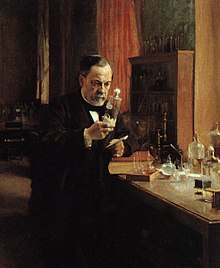There seems to be a contradiction between faith and
reason. Recently “University
of British Columbia study finds that analytic thinking can decrease
religious belief, even in devout believers” The research looked into the way in
which problem-solving thought processes affected the self-reporting of
religious belief. When participants used analytic thought, belief went down,
but intuitive thought did not adversely affect belief.
So, what does this all mean?
From personal experience I have to say this is
true. When we analyze something, we apply critical thinking skills and look for
flaws. The closest analogy is the difference between rehearsing a song and
finally performing it. In the rehearsal, every note is analyzed, the rhythm,
pitch, tone and tempo are all dissected. Once the elements of the song are
mastered, then they can be put back together to form a coherent whole. But in
working on a difficult piece, I will often just speak the words in rhythm to
get the pronunciation down. Or I’ll sing the notes without the words to cement
the melody. I’m applying so much focus to the act of learning the music that it
ceases to be come musical. It’s mechanical. Rote.
The process can stop there. With music, art,
writing and religion. There are many people who study these disciplines, dissecting
them to the most rudimentary components. Art is about the styles and periods,
writing is grammar and syntax, and religion is a series of propositions that
must be accepted or denied. It’s mechanical. Rote.
When I rehearse the music enough I can get past
the mechanics. What was once dissected is whole again. I don’t have to think laboriously
about the words, notes and rhythms. Instead I can focus on the meaning, feeling
and musicality of the song. That’s the moment that makes all the effort
worthwhile, when I can sing the song as it was meant to be: whole, complete and
full. Technical proficience will never produce music. The notes, words and
rhythms may be correct, but music is more than that. Music engages the soul as
well as the mind.
Analytic thinking has, for me, reduced my
religious feelings. It’s hard to believe strongly in God when I’m studying the
arguments for the existence of God. My brain is looking for the logical fallacies,
not engaging on an emotional level. Prolonged religious study can damage or
even cripple religious feeling. I’ve seen it in the people I went to school
with. Working through the rationale of faith is a natural and necessary part of
discovery. It’s a good thing. But it must happen in context with belief. The
head and the heart need to be engaged and communicating.

















